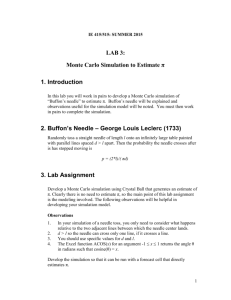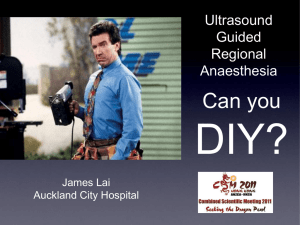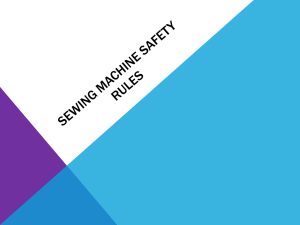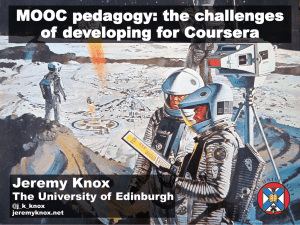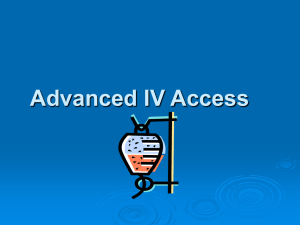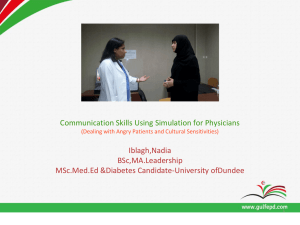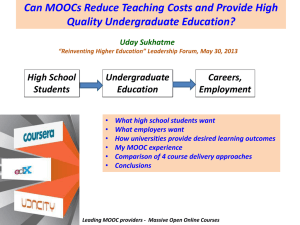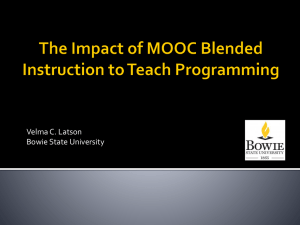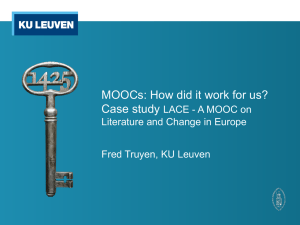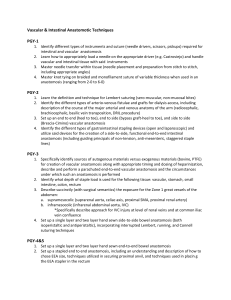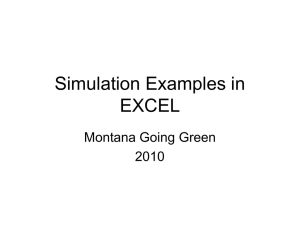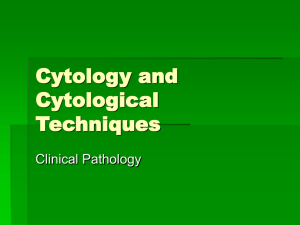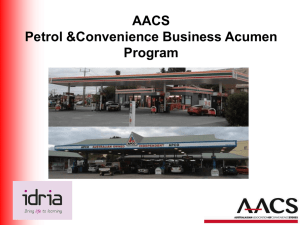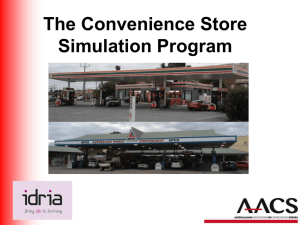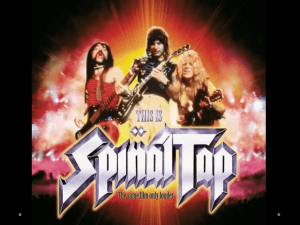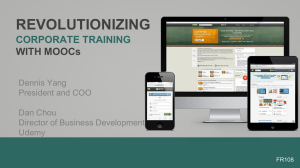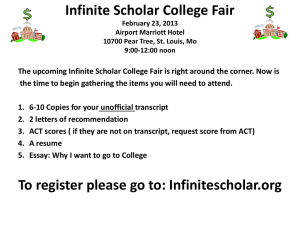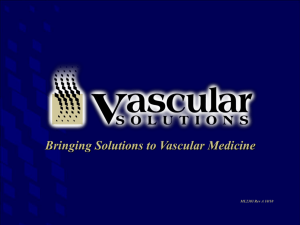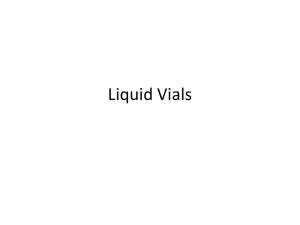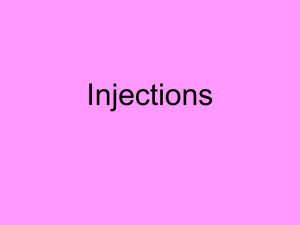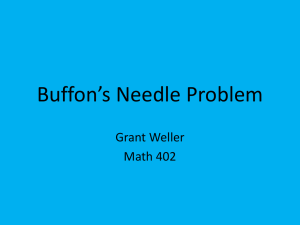presentation
advertisement
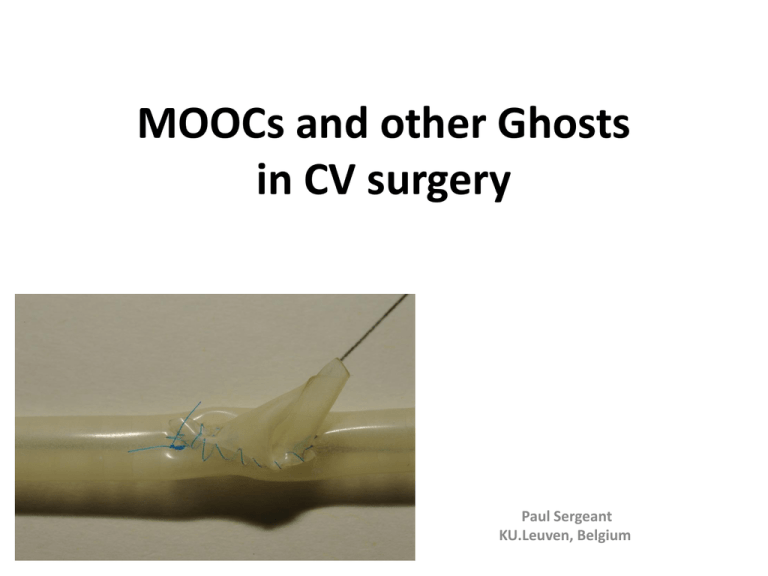
MOOCs and other Ghosts in CV surgery Paul Sergeant KU.Leuven, Belgium The educational curriculum of technical skills for anastomotic techniques in ischemic heart diseases Science of learning • • • • • • • • • • • • • • • Use of wiki-concepts Affordable and ubiquitous available processes Distributed and blended learning processes Individualized adult-centered processes Individualized learning communities Institutional or regional supervision Confidentiality of training processes with respect for scholar Curricular design Deconstruction in teachable components Use of simulation preceding real-life surgery Commitment to the simulator Repeated guidance in simulation Formative assessments, preferably using OSATS Gamification Discussion Boards My virtual CV surgery is a series of four learning continua Learning continuum of “my virtual anastomosis” Process: Step 1: Participate in a local simulation lab Step 2: get your own simulator and material Step 3: get an access code to the MOOC Step 4: follow a strict curriculum “in the cloud” Step 5: at regular steps an individualized formative assessment The wiki-concept in the creation of low-fidelity simulators Facts: manufactured in a protected workshop in Czech republic N=3400 in use worldwide cost 40 euro/simulator host/graft tubing at 0.1 euro/anastomosis My virtual anastomosis simulation labs Scholar sign-in in our MOOC Curricular design for simulation lab and MOOC: step 1 Curricular design for simulation lab and MOOC: step 2 step 3 step 4 OSATS-based formative assesments for simulation labs and MOOC: Objective Structured Assessments of a Technical Skill JTCVS2008;136:1486 Criterion Arteriotomy Poor 1 2 Avg 3 4 Excel 5 1 2 3 4 5 1 2 3 4 5 1 2 3 4 5 1 2 3 4 5 1 2 3 4 5 1 2 3 4 5 1 2 3 4 5 1 2 3 4 5 1 2 3 4 5 (porcine model: able to identify target, proper use of blade, single groove, centered) Graft Orientation (proper orientation for toe-heel, appropriate start and end-points) Bite appropriate (entry and exit points, number of punctures, even and consistent distance from edge) Spacing appropriate (even spacing, consistent distance from previous bite, too close vs too far) Use of needle holder (finger placement, instrument rotation, facility, needle placement, pronation and supination, proper finger and hand motion, lack of wrist motion) Use of forceps (facility, hand motion, assist needle placement, appropriate traction on tissue) Needle angles (proper angle relative to tissue and needle holder, consider depth of field, anticipating subsequent angles) Needle transfer (needle placement and preparation from stitch to stitch, use of instrument and hand to mount needle) Suture management/tension (too loose vs tight, use of tension to assist exposure, avoid entanglement) Knot tying (adequate tension, facility, finger and hand follow for deep knots) Totals Grand total Regular (8) mandatory interfaces (HIPAA-compliant) between scholar and trainer (blog, text, video and picts) Regular (8) mandatory interfaces (HIPAA-compliant) between scholar and trainer (blog, tekst, video and picts) Creation of an individualized HIPAA-compliant learning community Progress made in three hours simulation C. Schreiber Salzburg Oct 9 2013 from zero skills to this in one day Conclusions • More than 500 surgeons in the MOOC from > 50 countries worldwide, adding around > 20 every week. • A series of four integrated, blended and distributed learning continua have/are been created. – – – – My virtual anastomosis My virtual mitral valve My virtual aortic valve and root My virtual VSD • The science of learning is meticulously implemented at every single step. • The leverage of a global multinational MD company (Ethicon J&J) • The leverage of an ad-hoc HIPAA-compliant health collaboration platform (Meplis Inteligência em Saude) • The young surgeons will be ready to transfer their skills to patient care through an active structured process and not through saturation and saturation and saturation.
